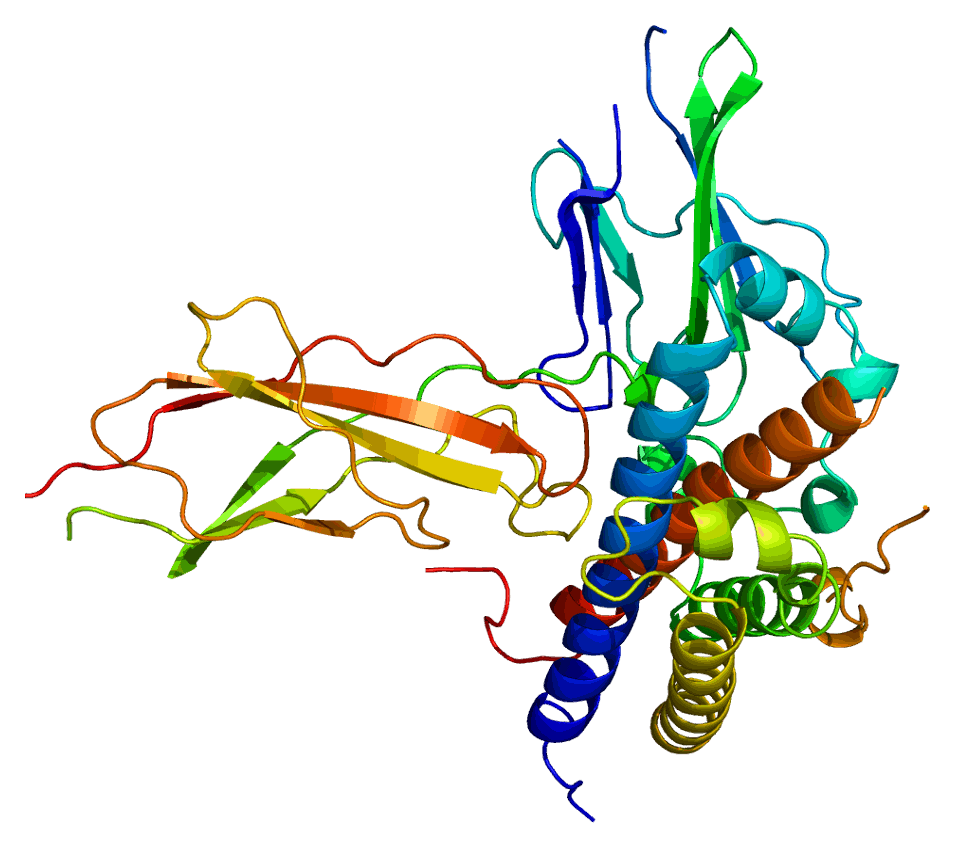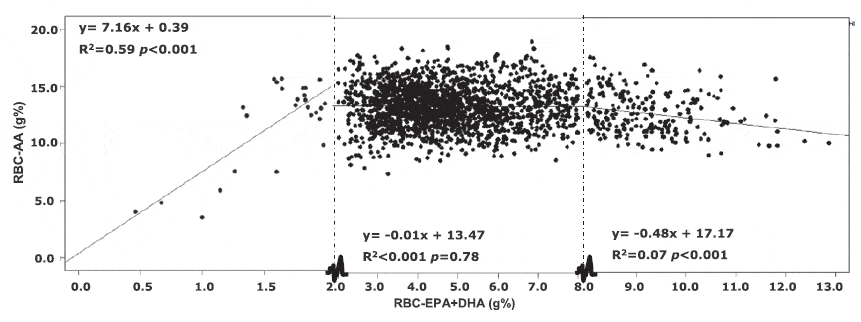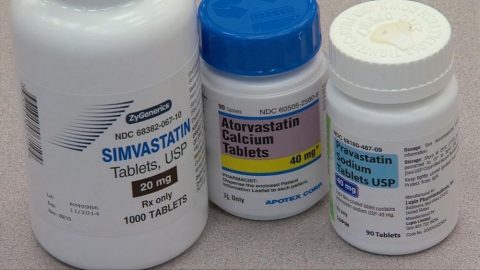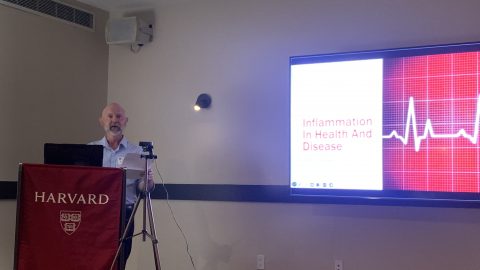GH update, 2019. I published this blog post in 2008 which summarized GH nicely, which was in line with what I told people about GH at the time; it’s widely over hyped and overrated. Fast forward to 2019, another large review of the studies, and the conclusion the same, it’s terrible anabolic.
They conclude: “The increase in lean body mass is due to an accumulation of extracellular water.”
I was curious to see if after over a decade of additional research if the findings on GH had changed at all. Nope. That’s not to say GH is worthless. It’s highly lipolytic for one thing, and in some populations, such as GH deficient older adults and such, has its uses. It also comes with a long list of potential side effects, so proper management and dosing is essential for those using it for say anti aging purposes without issues.
However, as a hormones used by young healthy active athletes looking to add muscle, improve performance, etc, it’s worthless for that use and widely overrated, no to mention ridiculously expensive. Combined with other hormones (a topic for another post perhaps…) it appears to have some synergy with TRT, but alone, it’s far from the super duper anabolic muscle builder some think it is. I do feel it may have some value in connective tissue treatment. Now if actual injections of GH don’t build muscle, the OTC “GH boosters” are less than worthless. OTC GH boosters seem like a category that refuses to die!
2008 Blog Post:
Human Growth Hormone: The Mother Of Over-Hyped Hormones
If there’s one over hyped misunderstood hormone out there, it’s human growth hormone (HGH). It’s constantly pushed as the mother of all anabolic hormones and mentioned in virtually every supplement add and every news story about athletes of all kind.
Readers of my ebooks and articles know I can consider it highly overrated in terms of what it can do for building muscle or improving athletic performance. GH has greater effects as a hormone that can improve recoup vs. directly impact performance per se, can have uses healing connective tissue injuries, and when combined with other hormones/drugs, appears to have synergism, although data is lacking there.
In terms of it’s ability to directly impact athletic performance, an extensive review of the literature recently published entitled “Systematic review: the effects of growth hormone on athletic performance” essentially came to the same conclusions as I have. The authors specifically evaluated evidence about the effects of growth hormone on athletic performance in physically fit, young individuals, so they were not looking at studies in GH deficient populations (e.g., older populations, etc.) which usually find benefits of using this hormone.
The authors reviewed a pile of studies which met a their inclusion criteria of randomized, controlled trials that “compared growth hormone treatment with no growth hormone treatment in community-dwelling healthy participants between 13 and 45 years of age.”
What they found after reviewing all these studies, was that on average, “lean body mass increased in growth hormone recipients compared with participants who did not receive growth hormone.” However, that increase in LBM only averaged 2.1 kg, or 4.62lbs. Not exactly impressive gains in LBM, considering what HGH costs or compared to even what a supplement like creatine can achieve!
More importantly, from all the studies they reviewed “strength and exercise capacity did not seem to improve” and “Growth hormone-treated participants more frequently experienced soft tissue edema and fatigue than did those not treated with growth hormone.”
It should be noted however that few studies looked directly at HGH effects on athletic performance directly, and the studies may not have reflected “real world” doses, but the above does not bode well for GH in my view, and this review does little to improve my opinion of HGH as a stand alone drug for improving performance in healthy athletes. Bang for the buck, it’s a highly overrated hormone for that use. The authors concluded
“Claims that growth hormone enhances physical performance are not supported by the scientific literature. Although the limited available evidence suggests that growth hormone increases lean body mass, it may not improve strength; in addition, it may worsen exercise capacity and increase adverse events. More research is needed to conclusively determine the effects of growth hormone on athletic performance.”
All in all, a fair assessment on their part in my view…
Sources:
Systematic review: the effects of growth hormone on athletic performance. Ann Intern Med. 2008 May 20;148(10):747-58. Epub 2008 Mar 17.
Will Brink is the owner of the Brinkzone Blog. Will has over 30 years experience as a respected author, columnist and consultant, to the supplement, fitness, bodybuilding, and weight loss industry and has been extensively published. Will graduated from Harvard University with a concentration in the natural sciences, and is a consultant to major supplement, dairy, and pharmaceutical companies.
His often ground breaking articles can be found in publications such as Lets Live, Muscle Media 2000, MuscleMag International, The Life Extension Magazine, Muscle n Fitness, Inside Karate, Exercise For Men Only, Body International, Power, Oxygen, Penthouse, Women’s World and The Townsend Letter For Doctors.
He’s also been published in peer reviewed journals.
Will is the author of the popular e-books, both accompanied by private members forum access , Bodybuilding Revealed & Fat Loss Revealed.
You can also buy Will’s other books on Amazon, Apple iBook, and Barnes and Noble.








So long story short, GH benefits very unproven and even when proven pretty neglible?
it’s hard to see how any athlete under 50 gets sold a bill of goods that hgh will do much for him.
he’s not likely to have pituitary problems. placebo effect? don’t sell the mind short.
and certainly don’t sell hard work short, as you get juiced up from what you think a substance will do for you.
the genius durk pearson, on the other hand, seems to think we need help nudging gh release along. and i *never* sell pearson short.
I have used the Durk Pearson arginine cocktail along with exercise on and off for the last 36 years. I can say when I use the protocol precisely the way Durk described it, I get a lot stronger than I would otherwise. It takes a hefty dose and a gut wrenching workout to get the results and that takes some getting used to. I have no idea if I’m releasing GH or what mechanism is involved, I just know the results
Actually, the placebo effect rulz w/respect to HGH…see: http://blog.ultimatefatburner.com/wordpress/more-on-the-placebo-effect/
I would say that it is one of the most over hyped substances there is. Neither the pharmaceutical injections or many supplements have documented evidence of having much benefit for people under the age of 40. Over 40 it is of assistance to a point but not the be all end all.
Of course we shouldn’t be too hard on just hgh. Many sports supplements are hyped way beyond their real value. You do a good job of addressing that subject in your books.
Been using GHRH(CJC-1295) and am getting shredded like never before and the vascularity is unbelievable it is like I got fire hoses running through my veins . But then again I am 53 years old . By the way this stuff is legal .
I think this can be used by anybody over the age of 40 for anti aging and health related issues. But should be used for legitimate purposes and under the supervision of qualified professionals.
OK, so how useful (and how safe) is it for those of us over age 45? If you were to take GH for a short while only, would the benefits disappear once you discontinue its use? I know intense exercise increases GH, but enough to make a difference?
Depends on a number of factors, such as if you’re deficient in GH, etc. It tends to work better clinically speaking using smaller doses over longer periods of time than higher doses for short duration it appears. It’s expensive and bang for the $$$, highly overrated per article comments.
very interesting
will HGH work for men over 65 just to maintain muscle strength and fimness. I am working out and I feel littel difference in tone. I am wonder if there are any other things that could help improve muscle tone. i.3e. arms and legs
Michael Mooney said this in 1999:
It’s been known a long time yes. No matter what you say, someone will always claim GH is the holy grail of anabolic hormones, when it’s not.